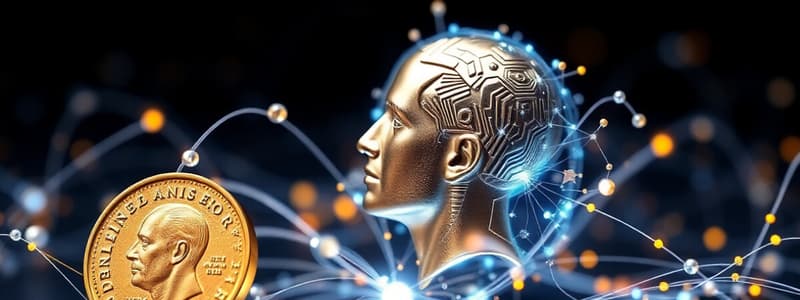Podcast
Questions and Answers
Who were the recipients of the Nobel Prize in Physics 2024?
Who were the recipients of the Nobel Prize in Physics 2024?
- Wilhelm Röntgen and Geoffrey Hinton
- John Hopfield and Geoffrey Hinton (correct)
- Wilhelm Röntgen and Subrahmanyan Chandrasekhar
- John Bardeen and CV Raman
Which physicist was the first to be awarded the Nobel Prize in Physics?
Which physicist was the first to be awarded the Nobel Prize in Physics?
- John Bardeen
- Subrahmanyan Chandrasekhar
- Wilhelm Röntgen (correct)
- CV Raman
What is the cash reward for the Nobel Prize in Physics?
What is the cash reward for the Nobel Prize in Physics?
- 5 million Swedish crowns
- 11 million Swedish crowns (correct)
- 10 million Swedish crowns
- 15 million Swedish crowns
In which year did CV Raman win the Nobel Prize in Physics?
In which year did CV Raman win the Nobel Prize in Physics?
Which physicist has won the Nobel Prize in Physics twice?
Which physicist has won the Nobel Prize in Physics twice?
Flashcards are hidden until you start studying
Study Notes
2024 Nobel Prize in Physics
- John Hopfield (USA) and Geoffrey Hinton (UK) were awarded the 2024 Nobel Prize in Physics.
- The prize recognizes their foundational work in machine learning with artificial neural networks.
Nobel Prize in Physics
- The Nobel Prize in Physics was first awarded in 1901.
- The prize is worth 11 million Swedish crowns (around $1.1 million).
- The Royal Swedish Academy of Sciences presents the prize.
Notable Nobel Physics Laureates
- Wilhelm Röntgen was the first recipient of the Nobel Prize in Physics in 1901 for his discovery of X-rays.
- C.V. Raman became the first Indian physicist to win the Nobel Prize in Physics in 1930 for his research on light scattering and the discovery of the Raman effect.
- Subrahmanyan Chandrasekhar won the Nobel Prize in Physics in 1983.
John Bardeen
- John Bardeen (American) is the only physicist to win the Nobel Prize in Physics twice, in 1956 and 1972.
Studying That Suits You
Use AI to generate personalized quizzes and flashcards to suit your learning preferences.




